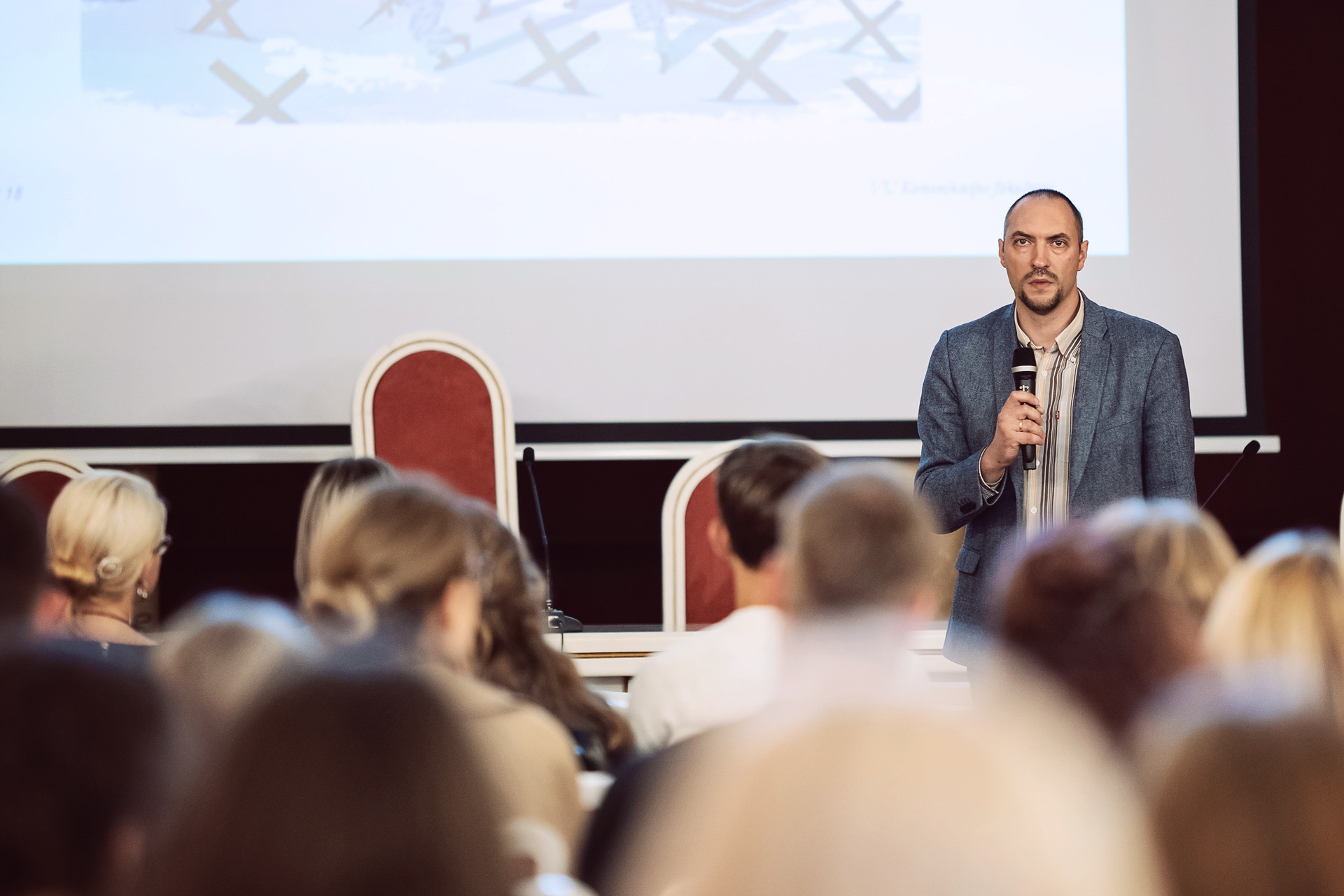The VU Faculty of Communication Establishes the Centre for Communication Influences and Propaganda Research
 The Faculty of Communication of Vilnius University (VU) established the Centre for Communication Influences and Propaganda Research, headed by Assoc. Prof. Dr Viktor Denisenko, a propaganda expert, journalist, and communication researcher.
The Faculty of Communication of Vilnius University (VU) established the Centre for Communication Influences and Propaganda Research, headed by Assoc. Prof. Dr Viktor Denisenko, a propaganda expert, journalist, and communication researcher.
"At our Faculty, we have a remarkable team of scholars focusing their research on propaganda, disinformation, and their dissemination in contemporary media, as well as the profound impact they have on society. Recent events have underscored the need to discuss the role communication plays in building and strengthening societal resilience," said Prof. Dr Renata Matkevičienė, Dean of the Faculty of Communication, adding that "the Centre aims to bring together experts not only to conduct research but also to produce applied analytical reviews and provide practical recommendations to stakeholders for assessing (hostile) communication actors and their influence efforts in Lithuania."
Assoc. Prof. Dr Denisenko notes that Lithuania, given its historical experience and geographical location, has both the legitimate ambition and the necessary competencies to be among the leading countries in researching hostile communication influences, including disinformation and propaganda.
"In Lithuania, we started talking about information wars and the threat of malicious propaganda long before it became a widely recognised issue. It wasn’t until Russia’s impudent annexation of Ukraine’s Crimean Peninsula in 2014 that these phenomena caught the wider attention of the Western world. This event highlighted the critical role informational aspects play in modern confrontations, showing that communication and information can also be wielded as a weapon. Meanwhile, for many years, Lithuania and the other Baltic states have been observing and experiencing Russia’s aggressive information campaigns," emphasised Assoc. Prof. Dr Denisenko.
The newly established Centre will expand its focus beyond harmful communication tactics to include media literacy. "Information wars are fought by means of communication – as in a conventional confrontation, this can include both offensive and defensive measures. Countering the harmful effects of disinformation and propaganda involves media literacy and its promotion, strategic communication tools, the role of quality media in shaping the public sphere, and many more. These topics will be the central focus of our research at the Centre," added the expert.
The Centre for Communication Influences and Propaganda Research is tasked not only with conducting research but also with providing expertise and analysis on communication influences and disinformation to decision-makers and other stakeholders. "Hybrid challenges require a complex response. Thus, we aim to act, at least in part, as an analytical centre that, in line with the tradition of such institutions, can both cooperate with the media and present research results to the general public in clear and accessible language through analytical publications and reports," concluded the Head of the new Centre Assoc. Prof. Dr Denisenko.